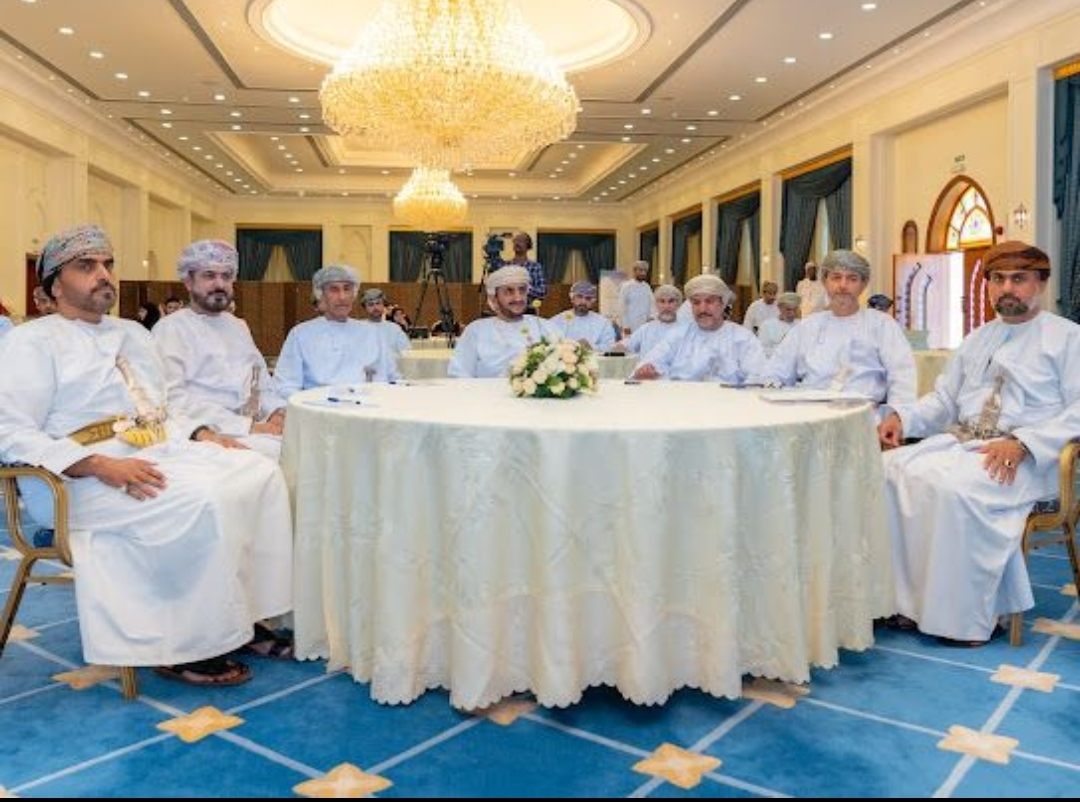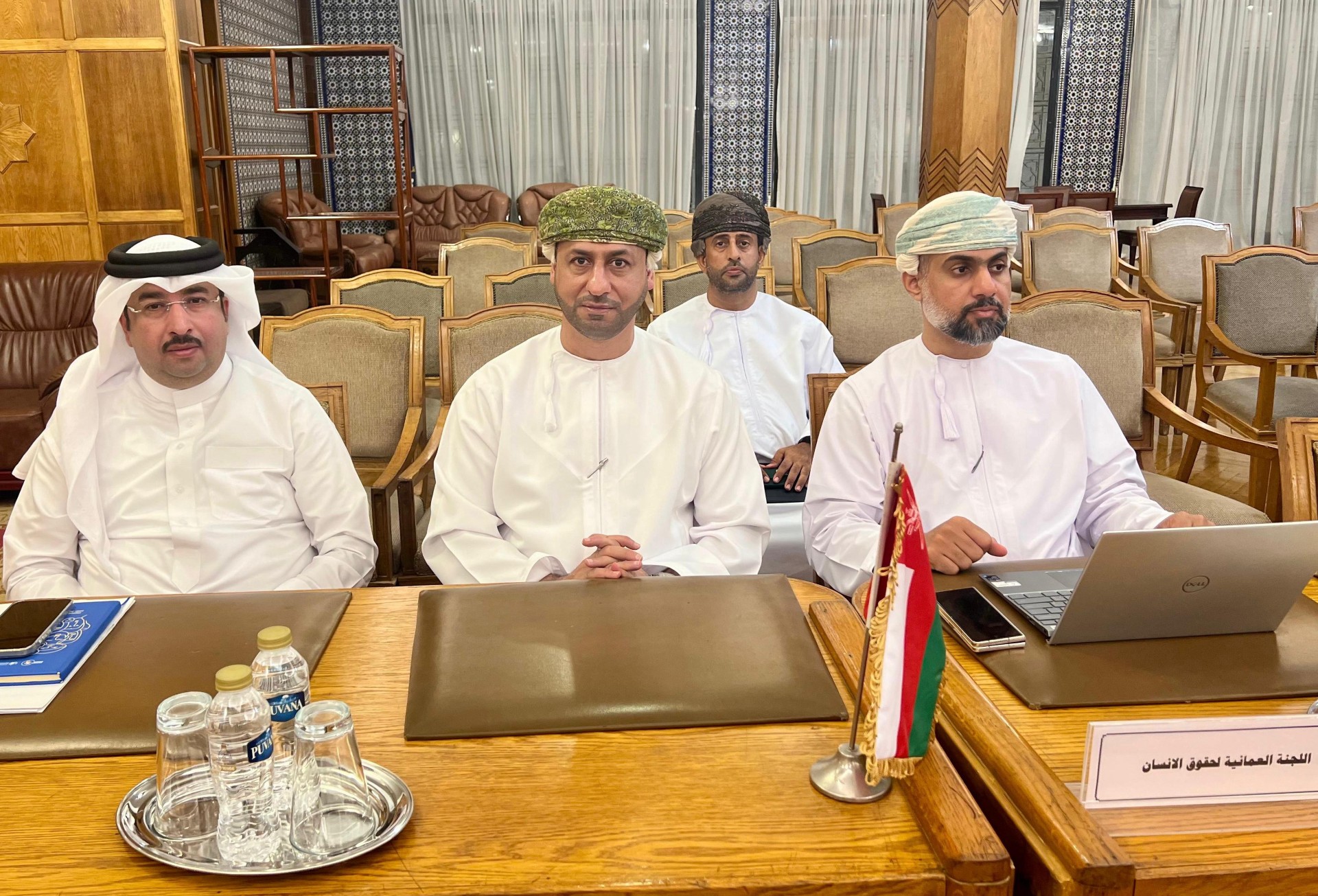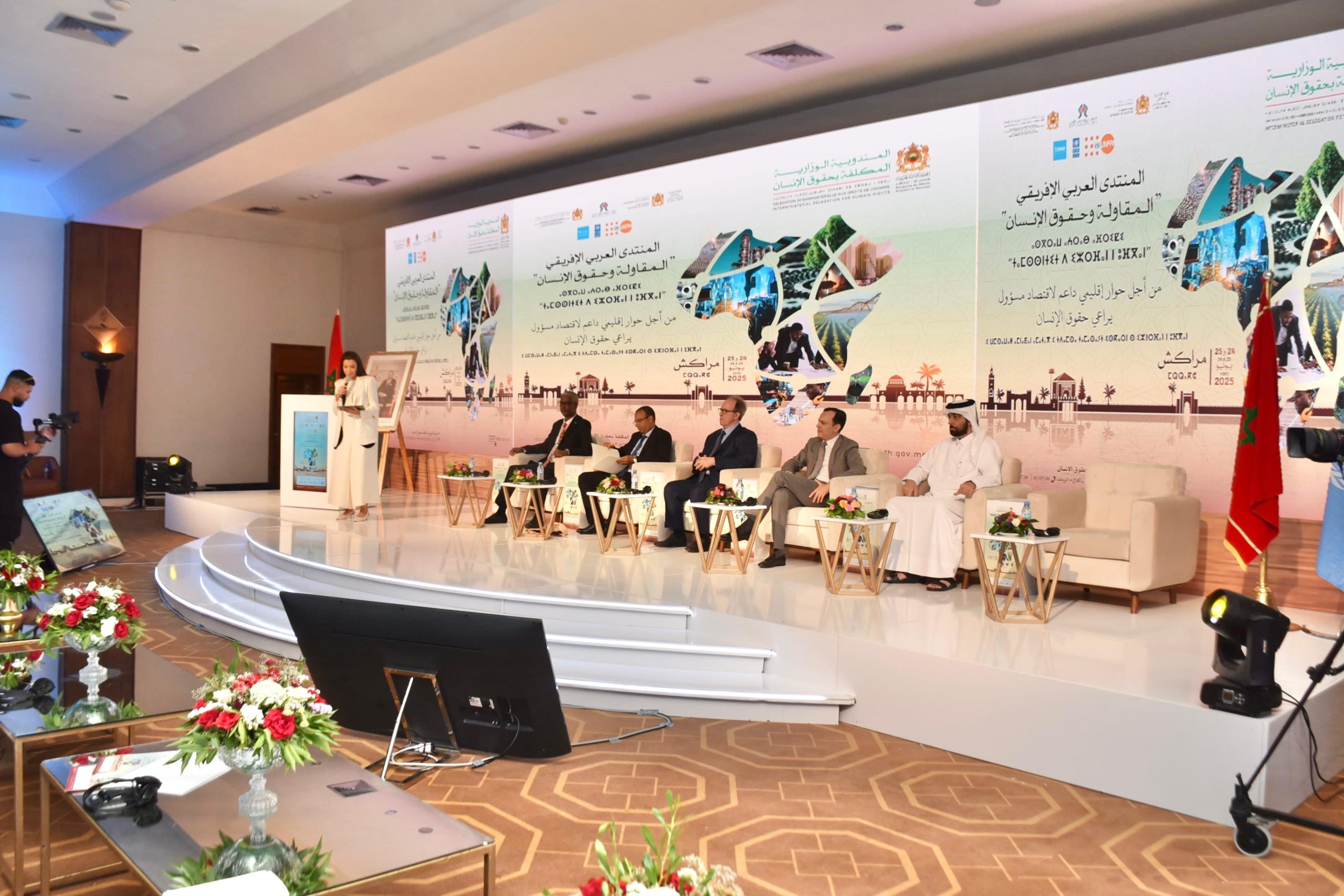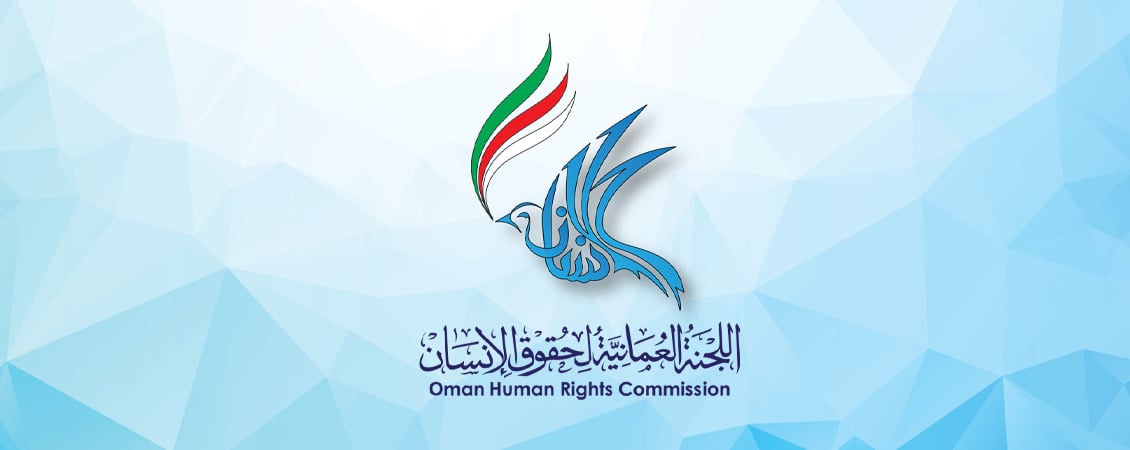The Symposium, organized by Oman Human Rights Commission in cooperation and partnership with the Ministry of Foreign Affairs, aimed to raise awareness of the importance of the right to food as one of the fundamental rights in accordance with international and regional human rights treaties.
It also addressed Oman’s efforts to enhance food security and relevant national policies while shedding light on the humanitarian efforts undertaken by Oman. The Symposium introduced the right to food according to international human rights law, emphasized the role of national and regional legislation in protecting this right, and reviewed national policies and strategies to ensure food security, highlighting Oman’s role in supporting humanitarian causes, particularly regarding the Palestinian people.
In his opening speech, His Excellency Ambassador Saleh bin Yahya Al-Maskari, Head of the Global Affairs Department at the Ministry of Foreign Affairs, stated that the right to food is not merely about the availability of food but also about diversity, affordability, and accessibility. He pointed out that the current food crisis in Gaza, exacerbated by the closure of crossings and the prevention of humanitarian aid from reaching over two million Palestinians, is a blatant violation of international treaties and humanitarian law, which emphasize the need to provide civilians with essential needs without obstacles.
His Excellency also affirmed that the Sultanate of Oman has paid great attention to food security and the provision of food, continually working to strengthen the food security system and accelerate the transition towards efficient and resilient agricultural and food systems. This effort aligns with Oman Vision 2040, which underscores the importance of food security as one of the pillars of sustainable development and economic diversification programs, including the agricultural, fishery, and water resource sectors.
On his part, Professor Rashid bin Hamad Al-Balushi, Chairman of Oman Human Rights Commission, emphasized that this day reaffirms the commitment of Arab countries to human rights principles and their continuous efforts to promote and protect these rights in line with international and regional treaties. He added that Oman’s celebration of this day through the Symposium reflects the great attention the Sultanate pays to human rights, actively contributing to fostering a human rights culture and enhancing community awareness. The Arab Human Rights Day serves as an annual opportunity to reaffirm commitment to the principles established by the Arab Charter on Human Rights, which represents a prominent regional framework for promoting and protecting human rights in the Arab world.
The designation of this day to discuss this right affirms the paramount importance of ensuring food security for all individuals and encourages Arab countries to adopt policies and measures that contribute to achieving this goal, in accordance with the Arab Charter and relevant international legislation. The Chairman of Oman Human Rights Commission pointed out that the blockade and restrictions imposed on Palestinians deprive them of the most basic necessities of life, necessitating effective international action to ensure the delivery of humanitarian aid to them and protect their legitimate right to food, as stipulated by international conventions.
Dr. Saleh bin Hamad Al-Barashdi, Chairman of the Monitoring and Complaints Committee, presented the first working paper, which addressed international and regional conventions related to the right to food. He highlighted key agreements and treaties that affirm this right as one of the fundamental human rights, referring to the Universal Declaration of Human Rights and the International Covenant on Economic, Social, and Cultural Rights, which stress the importance of ensuring adequate food as part of the right to an adequate standard of living. He also discussed the Arab Charter on Human Rights, explaining how these treaties contribute to enhancing food security and guaranteeing access to healthy food. He stressed that realizing this right requires effective national policies and international cooperation to ensure food security and sustainable development. In the second working paper, Engineer Abdulaziz bin Mohammed Al-Shukaili, Director of the Investment Department at the General Directorate of Agricultural and Fish Marketing at the Ministry of Agricultural, Fisheries, and Water Resources, discussed the concept of food security and the Ministry’s role.
He also elaborated on the alignment between Oman Vision 2040 and the Ministry’s strategies, the components of the food production sector, performance indicators for the agricultural and fishery sectors, and Oman’s performance according to international indicators. Additionally, he addressed the challenges facing the food security system, proposed solutions, and the investment program for food security and future prospects.
Mr. Mohammed bin Ali Al-Musafir, CEO of Al-Rahma Association, presented the third working paper, discussing the Association’s efforts in providing basic needs to individuals and families, empowering them to become productive and active members of society, and striving for financial sustainability.
He also addressed the implementation of governance and best practices and highlighted the Association’s efforts in cooperation with Oman Charitable Organization to aid Gaza, as well as the Association’s role in social care, family and psychological counseling, and research and studies.
The Arab Human Rights Day is an occasion aimed at raising awareness of human rights in Arab countries and highlighting efforts to consolidate the principles of justice and equality. This day was specifically chosen to coincide with the entry into force of the Arab Charter on Human Rights on March 16, 2008. The Charter, adopted by the League of Arab States, serves as a regional framework that upholds human rights while respecting the cultural and social specificities of Arab countries, in line with international principles in this field.
This day reaffirms the commitment of Arab states to international and regional human rights conventions, particularly the Arab Charter on Human Rights. It also serves as an opportunity to review and assess achievements and challenges related to human rights in the Arab world and to promote dialogue aimed at developing policies and legislation that ensure human rights in Arab countries. The theme for this year’s celebration is “The Right to Food,” emphasizing the importance of food security as a fundamental human right and the need to take measures to ensure food availability for all, especially amid humanitarian crises and economic challenges facing several Arab countries.











